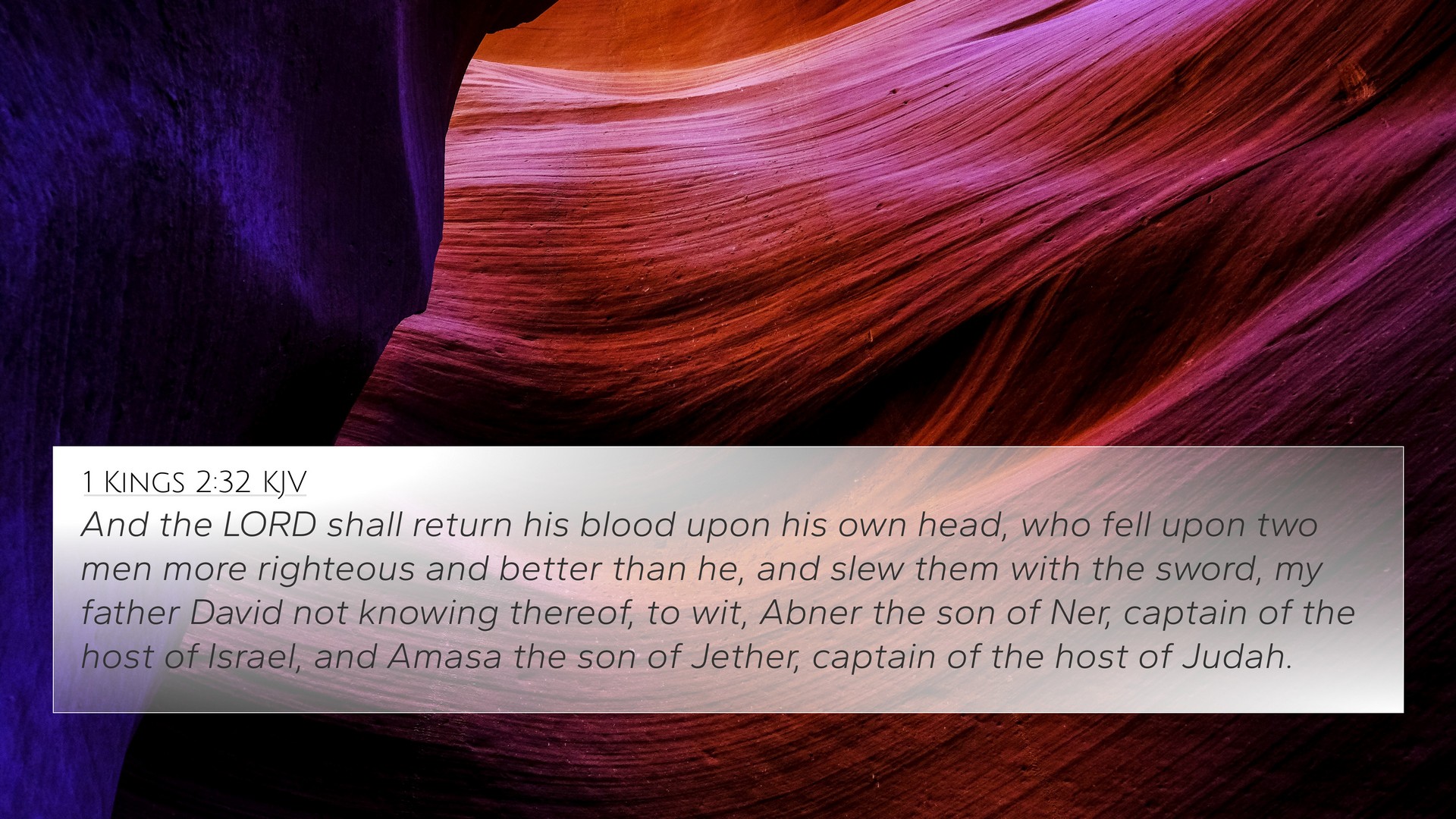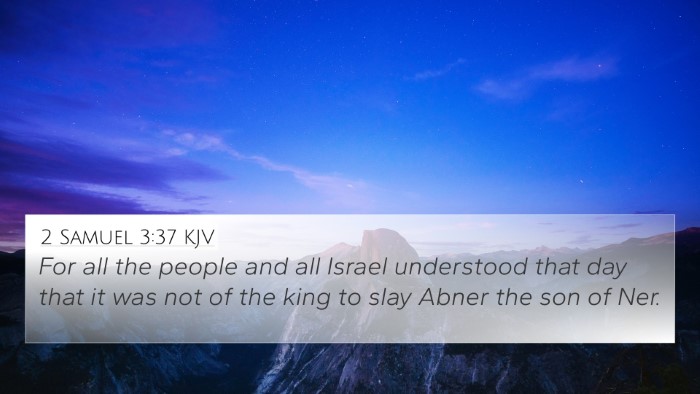Understanding 1 Kings 2:32
The verse 1 Kings 2:32 states:
"And the king sent and called for Shimei, and said unto him, Build thee a house in Jerusalem, and dwell there, and go not forth thence any whither."
Summary of 1 Kings 2:32
This verse is part of the narrative concerning the consolidation of King Solomon's reign. Shimei, who had previously insulted King David, is now living in a precarious situation. Solomon orders Shimei to build a house in Jerusalem and restricts his movements, which showcases the king's authority and his intent to maintain peace and stability in his kingdom.
Interpretation and Analysis
Based on public domain commentaries, the verse reflects several key themes:
- Authority of the King: King Solomon's directive emphasizes the power he holds. He establishes boundaries for Shimei, which signifies the need for order in the kingdom.
- Restoration and Safety: By commanding Shimei to reside in Jerusalem, Solomon provides him a sense of security, yet places him under surveillance, indicating the complexity of forgiveness and trust.
- Consequences of Actions: Shimei's previous actions against David illustrate how past behavior can have repercussions even after a person's situation appears to improve.
Commentary Insights
Matthew Henry: Henry states that Solomon's command to Shimei was wise as it served to ensure that Shimei could not cause trouble from outside the city. This decision reflects Solomon's prudence in dealing with former enemies while establishing his rule.
Albert Barnes: Barnes notes that this decree indicates the necessity of order and the importance Solomon placed on internal stability. Limiting Shimei's freedom also offered a tactical advantage against possible revolts.
Adam Clarke: Clarke elaborates on the implications of Shimei's potential response to the order. He highlights that Shimei's choice to disobey would bring about dire consequences, portraying a moral about adhering to decrees set by authorities.
Related Bible Verses
This verse has connections with the following passages:
- 2 Samuel 16:5-8: The story of Shimei cursing David, which sets the context for his current relationship with the monarchy.
- 1 Kings 2:8-9: King Solomon’s instruction regarding another adversary, which indicates a pattern of addressing those who could threaten his reign.
- Proverbs 16:7: "When a man’s ways please the LORD, he maketh even his enemies to be at peace with him," illustrating the broader principle of relationships with rivals.
- Deuteronomy 19:13: The importance of justice and not having pity on those who threaten the community.
- 1 Kings 2:36-46: Following Shimei's violation of Solomon's command, King Solomon takes action, further underscoring the seriousness of obedience to the king's word.
- Matthew 5:25-26: Encouragement for reconciliation with adversaries, reflecting on the theme of handling interpersonal conflicts.
- Galatians 6:7: "Be not deceived; God is not mocked: for whatsoever a man soweth, that shall he also reap," emphasizing the consequences of one's actions.
Cross-Referencing and Thematic Connections
1 Kings 2:32 also serves as an entry point for deeper cross-referencing:
- Old Testament to New Testament: Understanding how themes of authority persist across both testaments, particularly in Jesus’ teachings about leadership and submission (Romans 13:1).
- Comparative Study of Leadership: Comparing Solomon's kingship with that of Jesus Christ, where both faced challenges from within their circles yet were focused on establishing a kingdom built on righteousness.
- Theme of Repentance: Examining how Shimei's story mirrors today's exploration of forgiveness and restoration (Luke 17:3-4).
- Justice and Mercy: The dual nature of God’s justice as seen in Shimei’s fate following disobedience, which relates to narratives like that of the Prodigal Son (Luke 15).
Tools for Understanding and Cross-Referencing
For anyone seeking to deepen their understanding of biblical texts, utilizing resources such as a bible concordance or a bible cross-reference guide is essential. These tools can assist in:
- Identifying connections between diverse verses and themes.
- Conducting a comprehensive study of biblical characters and their narratives.
- Linking Bible scriptures across different books and testaments for thematic continuity.
- Examining comparative verse analyses, particularly in the context of conflict resolution.
Conclusion
1 Kings 2:32 offers valuable lessons on authority, obedience, and the complexities of forgiveness. As we explore this verse alongside related scriptures, we deepen our understanding of the biblical narrative and its teachings.
















